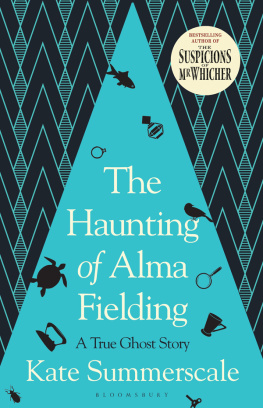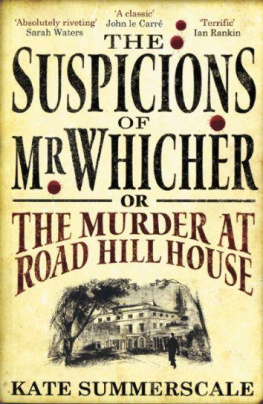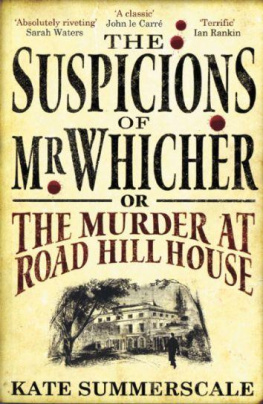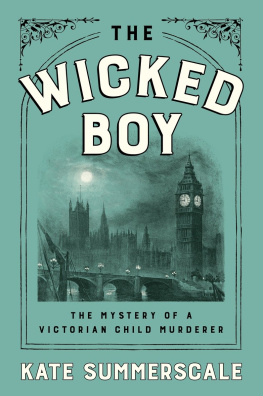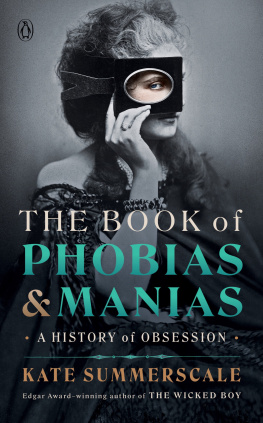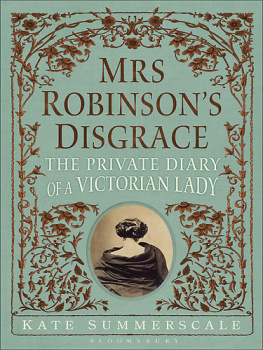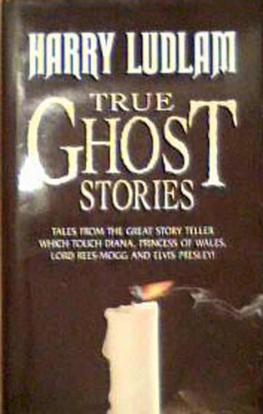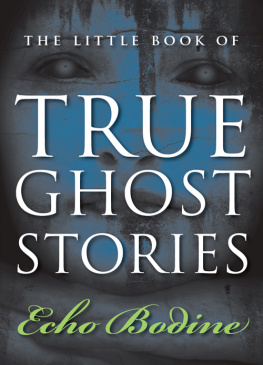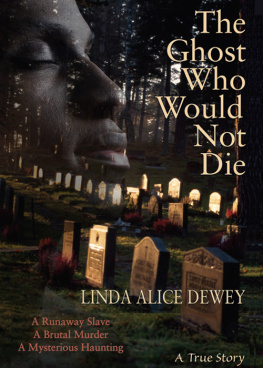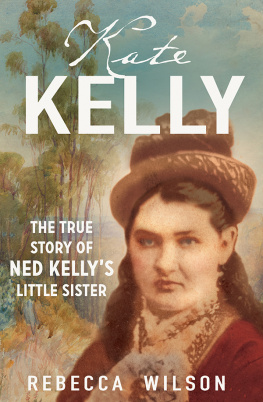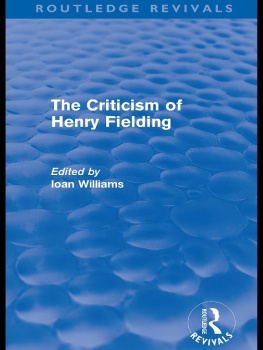Kate Summerscale - The Haunting of Alma Fielding: A True Ghost Story
Here you can read online Kate Summerscale - The Haunting of Alma Fielding: A True Ghost Story full text of the book (entire story) in english for free. Download pdf and epub, get meaning, cover and reviews about this ebook. year: 2020, publisher: Bloomsbury Publishing, genre: History. Description of the work, (preface) as well as reviews are available. Best literature library LitArk.com created for fans of good reading and offers a wide selection of genres:
Romance novel
Science fiction
Adventure
Detective
Science
History
Home and family
Prose
Art
Politics
Computer
Non-fiction
Religion
Business
Children
Humor
Choose a favorite category and find really read worthwhile books. Enjoy immersion in the world of imagination, feel the emotions of the characters or learn something new for yourself, make an fascinating discovery.
- Book:The Haunting of Alma Fielding: A True Ghost Story
- Author:
- Publisher:Bloomsbury Publishing
- Genre:
- Year:2020
- Rating:4 / 5
- Favourites:Add to favourites
- Your mark:
- 80
- 1
- 2
- 3
- 4
- 5
The Haunting of Alma Fielding: A True Ghost Story: summary, description and annotation
We offer to read an annotation, description, summary or preface (depends on what the author of the book "The Haunting of Alma Fielding: A True Ghost Story" wrote himself). If you haven't found the necessary information about the book — write in the comments, we will try to find it.
The Haunting of Alma Fielding: A True Ghost Story — read online for free the complete book (whole text) full work
Below is the text of the book, divided by pages. System saving the place of the last page read, allows you to conveniently read the book "The Haunting of Alma Fielding: A True Ghost Story" online for free, without having to search again every time where you left off. Put a bookmark, and you can go to the page where you finished reading at any time.
Font size:
Interval:
Bookmark:

THE HAUNTING OF ALMA FIELDING

BLOOMSBURY CIRCUS
Bloomsbury Publishing Plc
50 Bedford Square, London, WC1B 3DP, UK
BLOOMSBURY, BLOOMSBURY CIRCUS and the Bloomsbury Circus logo are trademarks of Bloomsbury Publishing Plc
First published in Great Britain 2020
This electronic edition published 2020
Copyright Kate Summerscale, 2020
Kate Summerscale has asserted her right under the Copyright, Designs and Patents Act, 1988, to be identified as Author of this work
Extract from As I Walked Out One Evening copyright 1940 by W. H. Auden, renewed
Reprinted by permission of Curtis Brown, Ltd
Extract from The Red Signal copyright 1933 by Agatha Christie
Reprinted by permission of HarperCollins Publishers Ltd
Extract from No. 16 copyright Elizabeth Bowen 1939
Reproduced with permission of Curtis Brown Group Ltd, London on behalf of The Beneficiaries of the Estate of Elizabeth Bowen
Extract from The Dry Salvages copyright 1941 by T. S. Eliot
Reproduced by permission of Faber & Faber Ltd
For legal purposes the constitute an extension of this copyright page
All rights reserved. No part of this publication may be reproduced or transmitted in any form or by any means, electronic or mechanical, including photocopying, recording, or any information storage or retrieval system, without prior permission in writing from the publishers
A catalogue record for this book is available from the British Library
ISBN: HB: 978-1-4088-9545-0; TPB: 978-1-4088-9544-3; EBOOK: 978-1-4088-9543-6; SIGNED SPECIAL EDITION: 978-1-5266-3105-3
To find out more about our authors and books visit www.bloomsbury.com and sign up for our newsletters
ALSO BY KATE SUMMERSCALE
The Queen of Whale Cay
The Suspicions of Mr Whicher
Mrs Robinsons Disgrace
The Wicked Boy
For David Miller
O plunge your hands in water,
Plunge them in up to the wrist;
Stare, stare in the basin
And wonder what youve missed.
The glacier knocks in the cupboard,
The desert sighs in the bed,
And the crack in the tea-cup opens
A lane to the land of the dead.
W. H. Auden, As I Walked Out One Evening (1940)
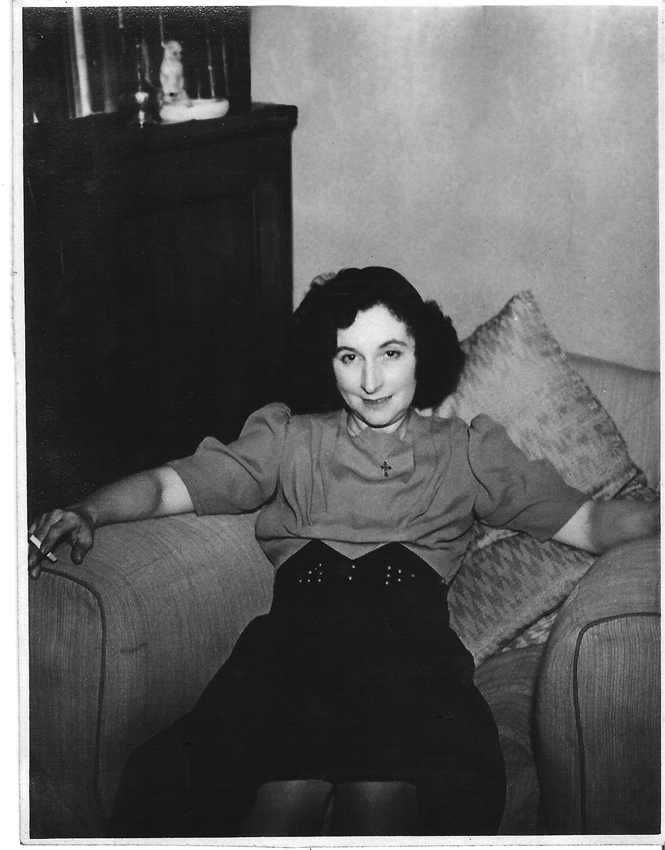
Alma Fielding
CONTENTS
In January 2017 I visited the Society for Psychical Research archive in Cambridge to look up some references to the ghost hunter Nandor Fodor, a Hungarian emigr who had been a pioneer of supernatural study in London between the wars. I wanted to know more about Fodors investigation of a housewife called Alma Fielding, a poltergeist case from which he deduced, to the horror of his colleagues, that repressed traumatic experiences could generate terrifying physical events.
I had seen several references to Fodor in the catalogue to the SPR archive, but I didnt expect to find anything directly relevant in its files: he had investigated Alma for a rival organisation, the International Institute for Psychical Research, whose papers were said to have been destroyed by German bombs. But when the documents were delivered to the university librarys manuscripts room, I discovered that they were Fodors original International Institute papers. The SPR must have acquired the smaller organisations archive when it was disbanded in the 1940s. To my delight, one of the files turned out to be Fodors dossier on Alma, mistakenly catalogued as a holding on Mr Fielding. The manila folder contained the documents that the Institute had confiscated when it expelled Fodor in the autumn of 1938: transcripts of Almas seances and of his interviews with her, lab reports, X-rays, copies of her contracts, scribbled notes, sketches, photographs of the damage wrought by her poltergeist in her house and on her body. The pages were dense with facts and figures: measurements, times, dates, weights. This fat folder of evidence seemed a wonderful object: a documentary account of fictional and magical events, a historical record of the imagination. I hoped it would explain the radical link that Fodor had made between suffering and the supernatural.
In the taxi from Cambridge railway station to the library the next day, my driver asked me what I was researching. I told him that I was studying psychical material from the 1930s. Was I an expert? he asked. No, I replied, I was new to it. He told me that, as it happened, psychical research was his speciality. He had read widely in the subject and had become pretty good at the clairvoyant skill of remote viewing. Sometimes he annoyed his girlfriend by calling her at work and telling her what she was doing, or which sandwiches she had chosen for lunch. I asked the driver when this started. He said that his great-grandmother had been a medium. He said that I wouldnt believe the things that he had seen in the spirit world: dragons, monsters everything that I had read about in stories. We drew up outside the library and he turned in his seat to face me.
In fact Ive got one with me right now, he smiled, hanging round my neck. It was an amphisbaena, he said, a two-headed snake. According to Greek myth, the amphisbaena is the spawn of blood dripped from the Medusas head. It feeds on corpses and its two mouths spew poison.
Whys it there? I asked, looking at the cab drivers bare neck and laughing a little uneasily. Protection? Yes, he said. Healing.
Nowadays, we find that nearly everything comes from within from our subconscious self
Agatha Christie, The Red Signal (1933)
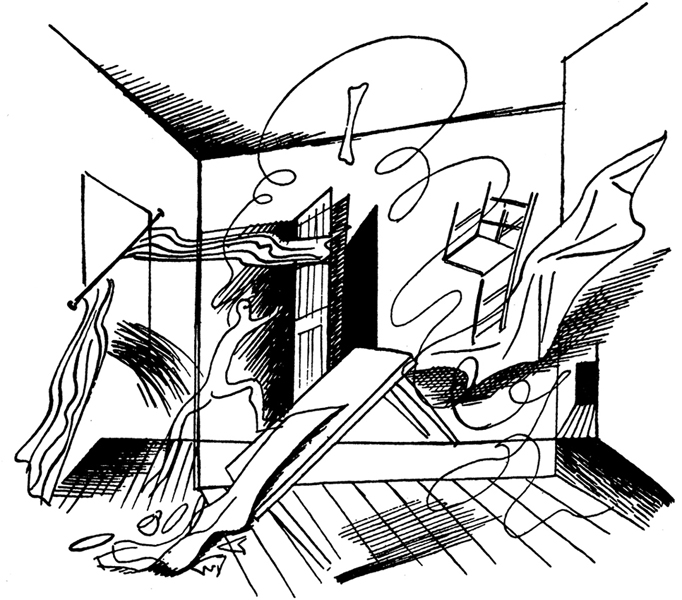
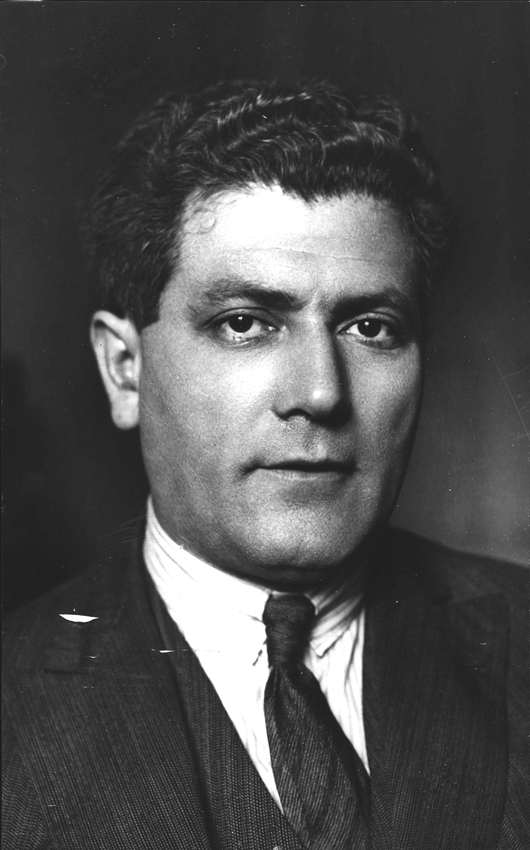
Nandor Fodor
At his office in South Kensington on Monday 21 February 1938, Nandor Fodor opened a letter from an East End clergyman of his acquaintance. The Reverend Francis Nicolle wanted to alert him to a poltergeist attack in the suburb of Thornton Heath, just south of London, which had been the subject of a report in that weekends Sunday Pictorial .
I wonder whether you have seen it? wrote Nicolle. Unfortunately the actual address is not given. The minister thought that the haunting sounded even more remarkable than a similar case in east London that he had helped Fodor to investigate that month.
Fodor, a Jewish-Hungarian journalist, had for four years been chief ghost hunter at the International Institute for Psychical Research. He loved his job, which required him to investigate and verify weird events, but the spiritualist press had recently turned against him. The bestselling weekly Psychic News accused him of being cynical about the supernatural and unkind to mediums, charges that were so damaging to his reputation as a psychical researcher and his future in England that in January he had sued for libel. He was now desperate to prove his sincerity and his aptitude: he needed to find a ghost.
Fodor obtained a copy of the latest Pictorial . The paper had run the poltergeist story next to a giant cut-out photograph of Adolf Hitler, who was poised to invade Austria, so that the news of the haunting seemed to issue from the Fhrers shouting mouth. GHOST WRECKS HOME , ran the headline, FAMILY TERRORISED .
Next pageFont size:
Interval:
Bookmark:
Similar books «The Haunting of Alma Fielding: A True Ghost Story»
Look at similar books to The Haunting of Alma Fielding: A True Ghost Story. We have selected literature similar in name and meaning in the hope of providing readers with more options to find new, interesting, not yet read works.
Discussion, reviews of the book The Haunting of Alma Fielding: A True Ghost Story and just readers' own opinions. Leave your comments, write what you think about the work, its meaning or the main characters. Specify what exactly you liked and what you didn't like, and why you think so.

